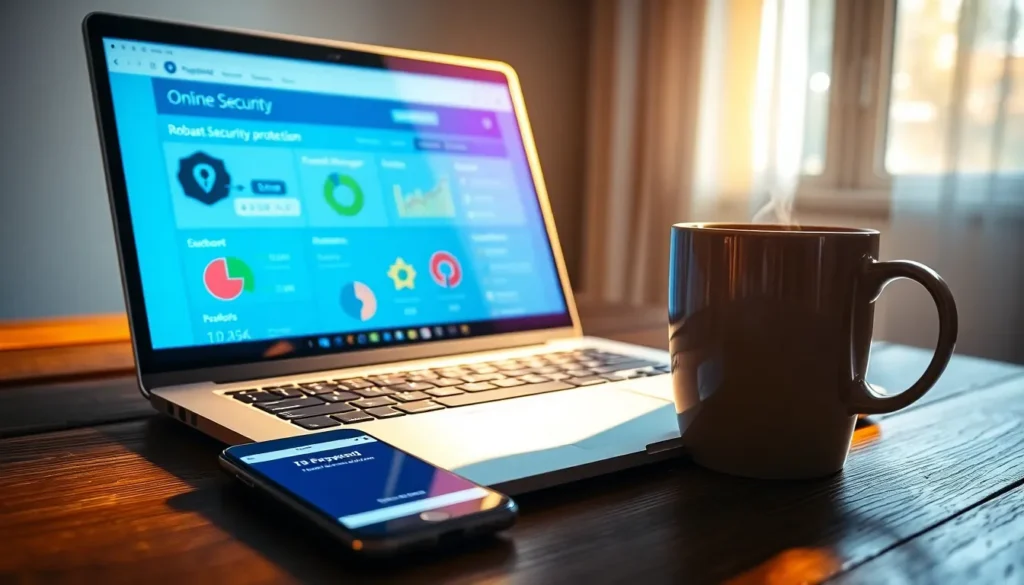In today’s digital world, online security is more crucial than ever. With the rapid expansion of the internet, individuals face a multitude of threats that could jeopardize their personal and financial information. From cyberattacks to identity theft, the risks are ever-present. This is where LotsOfPower steps in, offering robust solutions designed to keep your online life secure. This article delves into the essential elements of online security, covering topics like strong passwords, two-factor authentication, encryption, digital footprints, and ways to recognize and avoid online threats.
Table of Contents
ToggleUnderstanding Online Security: The Basics

The Importance of Strong Passwords
Strong passwords are the first line of defense against unauthorized access to online accounts. They serve as gatekeepers to sensitive information, including emails, financial details, and personal profiles. To fortify online security, it’s vital to create passwords that are not only complex but also unique to each account. A robust password typically includes a mix of uppercase and lowercase letters, numbers, and special characters. Using a password manager can also help in generating and storing these unique passwords securely.
Two-Factor Authentication: An Added Layer of Protection
Two-factor authentication (2FA) provides an extra layer of security beyond just a password. This methodology requires users to verify their identity through a second medium after entering their password, such as a text message or authentication app. With many platforms offering 2FA, it’s a simple yet effective way to prevent unauthorized access, even if a password is compromised. By enabling this feature, users can significantly reduce the risk of their accounts being hacked.
Encryption: Keeping Your Data Safe
How LotsOfPower Enhances Your Online Privacy
Encryption transforms data into a format that can only be read by authorized parties, effectively safeguarding personal information from prying eyes. LotsOfPower utilizes advanced encryption technologies to protect user data during transmission and storage. This means that sensitive information, such as credit card details and personal conversations, are transformed into encrypted code, making it nearly impossible for hackers to decipher.
Plus to encryption, LotsOfPower emphasizes the importance of using secure connections. Utilizing Virtual Private Networks (VPNs) and Secure Socket Layer (SSL) technology ensures that all data sent over the internet remains private and protected from external threats. With these robust features, users can confidently navigate the online world, knowing their data is shielded from vulnerabilities.
Managing Your Digital Footprint
Tips for Protecting Personal Information Online
Digital footprints are the traces individuals leave behind while using the internet. These can include social media interactions, website visits, and online purchases. Managing this footprint is essential for online privacy and security. Here are some tips to help protect personal information:
- Limit Sharing Personal Information: Be mindful of the data shared on public platforms. Avoid posting sensitive information that could be exploited by cybercriminals.
- Review Privacy Settings: Regularly check privacy settings on social media accounts and online services. Adjust them to restrict access to personal information.
- Think Before You Click: Cybercriminals often use social engineering tactics to manipulate users into providing personal information. Be cautious of unsolicited emails or messages asking for sensitive details.
- Regularly Update Software: Keep all software, including web browsers and applications, updated. Updates often include security patches that protect against known vulnerabilities.
Recognizing and Avoiding Online Threats
Staying Informed: Resources for Online Safety
Understanding the landscape of online threats is paramount to maintaining security. Cyber threats continuously evolve, making it essential to stay informed about the latest trends and tactics used by cybercriminals.
- Follow Cybersecurity Blogs: Websites dedicated to cybersecurity provide valuable insights and updates on potential threats. Signing up for newsletters or following these blogs can help users remain vigilant.
- Use Security Tools: Employing security software such as antivirus programs, firewalls, and anti-malware tools can help detect and mitigate threats before they can cause damage. LotsOfPower includes robust security features designed to alert users of potential risks.
- Engage in Online Courses: Online learning platforms offer courses on cybersecurity awareness. These courses teach users how to identify phishing attempts, secure their devices, and enhance overall online safety.
- Connect with Community Resources: Local community centers and libraries often host workshops on online safety. These sessions can provide hands-on tips and strategies for securing personal information on the internet.
Conclusion
To conclude, maintaining online security is paramount in today’s interconnected world. With threats lurking at every corner, individuals must take proactive measures to safeguard their digital identities. By understanding the basics of online security, utilizing tools like LotsOfPower for encryption, managing digital footprints, and staying informed about online threats, users can create a safer online environment. In an age where data privacy is essential, empowering oneself with knowledge and utilizing available resources significantly enhances overall security.







